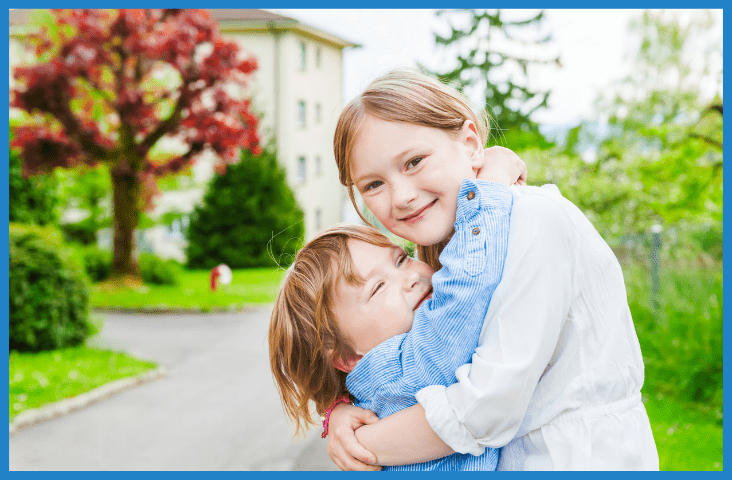
Why Emotional Intelligence matters and how to teach it
As a society, we tend to place a large amount of emphasis on intelligence as a marker of success. But research tells us that intelligence alone only accounts for around 20% of a person’s success in life. And in fact, emotional intelligence (EQ) tends to be a greater predictor of future success and happiness than IQ. But what exactly is emotional intelligence?
What is Emotional Intelligence?
Emotional intelligence is our ability to recognise, understand, and manage our own emotions, and the emotions of others. It’s about understanding that our emotions affect our behaviour and have an impact on the people around us. It then requires us to use that understanding to manage our emotions and adapt our responses to meet the demands of the situation we are in.

Why is learning to manage emotions important?
Emotions are essentially strong impulses, or urges, that are designed to inspire action. Emotions in and of themselves are not problematic. They are neither good nor bad. They are simply messages, encouraging us to listen and respond.
Emotions are also automatic. They exist independently of our thoughts. They have to, in order to do their job. Which means that we cannot change the way we feel about things. What we can change though, is the way we respond to those feelings. And that is what we learn to do when we build emotional intelligence.
Emotions in the brain
Our emotions are the responsibility of our limbic system. This is often referred to as the “Feelings Brain”. And our ability to plan and manage our behavioural responses to those emotions is the responsibility of the prefrontal cortex. This is often referred to as the “Thinking Brain”.
And here’s the problem. When we experience strong emotions, the thinking brain goes offline. We cannot access this logical, rational area of the brain. The emotional brain takes charge instead. And that affects our ability to learn, make decisions, and organise our thoughts and responses. So when emotions are running high, we tend to act irrationally. We are more impulsive and reactive and often behave in ways we later regret or that damage our relationships with others. Not exactly a recipe for success, right?
Here’s the good news though. Unlike IQ, which is something we are born with and that remains fairly stable over time, emotional intelligence changes. It can – and should – be taught and learned.
It’s also not one single skill, but 5 equally important, interrelated skills.

The 5 components of Emotional Intelligence and how to teach them to your child
1) Self Awareness
This is your ability to recognise and understand your emotions as they are happening to you. It is about knowing what your emotions feel like in your body, what may be causing them, and how they affect you.
How to teach kids self-awareness
Label emotions: The first step in building self-awareness is giving kids the language they need to talk about emotions. Research shows that even the simple act of labeling how we feel can reduce the intensity of an emotion. It also shifts us from the emotional brain, back to the thinking brain. And once the thinking brain comes back online, so does our ability to manage how we feel.
Link emotions to bodily sensations: We can also help kids learn how emotions feel inside their bodies. We do this by noticing how our own body feels when we experience emotions. “I was feeling so scared before, my heart was beating super-fast”. We can also notice how our child’s body feels or how they behave when they feel big emotions. “You are so mad, I see you stomping your feet”. Or, “Your hand is feeling shaky in mine – are you nervous?”
Link emotions to events: When children believe that emotions are just random events that happen to them, they tend to believe there is nothing they can do to change them. By helping children see that emotions are linked to specific events, we build their self-awareness. For example, “You are feeling angry because mummy said no more cookies.”

2) Self Regulation
Once you are aware of your emotions, you need to learn how to effectively manage them in safe, healthy ways. This skill is about learning how to adapt and be emotionally flexible, so we can express emotions in ways that are situationally appropriate.
How to teach kids self-regulation
Model healthy self-regulation: The most important way to teach kids self-regulation is to learn how to regulate your own emotions. Before kids learn how to self-regulate, they need to experience repeated instances of co-regulation. This means that when we comfort and respond to our children calmly, they are able to feel safe and secure. They are then able to “borrow” some of our calm, and eventually learn to soothe themselves.
Teach kids coping skills: Children need to know what they can do when they start to notice emotions in their bodies. Keeping a range of calming tools in a dedicated space like a calm down corner can be helpful for children. That way, they can grab what they need quickly, without too much thought. Activities like mindful breathing, stress balls, fidgets, or yoga cards are great tools to help kids manage big feelings. Try doing these together with your child to begin with.
Wait: Ultimately, self-regulation is a developmental skill. So while we can support our children with these skills, we also need to accept that their young brains are still growing and developing. Mastery of these skills will take time, and lots and lots of practice, too!

3) Motivation
Being aware of, and able to effectively manage our emotions increases our self-motivation. This is the ability to work towards a goal and remain committed to a task even when faced with obstacles and challenges.
How to help kids with motivation
Limit extrinsic rewards: Research tells us that using extrinsic rewards like sticker charts, certificates, rewards, and even praise, can reduce a child’s intrinsic motivation and drive. While these strategies appear to work at first, over time, they actually reduce the likelihood that children will achieve their goals. Try focusing on encouragement, gratitude, and acknowledgment of a child’s effort instead.
Foster a growth mindset: Encouraging a growth mindset helps children understand that with hard work, effort, and perseverance, they can reach their goals and improve their skills. It is about focusing on the process rather than the end result and encouraging children to view challenges and setbacks as learning opportunities rather than failure.

4) Empathy
Empathy is an awareness and understanding of the emotions of others, and the ability to see things from another person’s point of view.
How to teach kids empathy:
Talk about emotions: Teaching empathy requires us to discuss emotions with our children frequently. By making our children aware of the emotions of others, we help them learn how to respond appropriately. Try talking to your child about the emotions of their friends, of tv show characters, or the characters in their favourite book. For example, “This boy in your story is crying, how do you think he feels? Why do you think he feels that way?”
Respond to your child with empathy: We cannot offer up to others what we have never learned for ourselves. When we ditch shame and blame and instead offer our children compassion and empathy, they feel seen, heard and understood. And this is what allows them to do the same for others. Ditch phrases like, “You made me….” or “Why would you do that?” and focus instead on trying to understand and validate your child’s emotions.
Model kindness to others: Many of us talk a lot about kindness but forget to model it for our children. When our children see us being kind to others, they understand that we truly value this trait. When they witness kindness and empathy in action, they learn what it looks like and how to show it to others, too.

5) Social Skills
Once we have mastered all of the other skills, we are then able to apply them to our relationships. This is our ability to communicate effectively with others, to work collaboratively, and to be mindful of other people’s needs and feelings. This is what allows us to maintain close, healthy, and meaningful relationships with others.
How to build your child’s social skills
Play: Children primarily learn social skills through play – both unstructured, imaginary play, as well as more structured games and activities. During play, children learn a range of important skills. They learn how to take turns, share with others, resolve conflict, problem solve, express themselves, and even regulate their emotions. However, adult interference in children’s play can sometimes hinder the development of these skills. So unless someone is getting hurt, or you are personally invited to participate, it’s totally fine to sit back and leave the children to it!

Give them lots of practice: It’s important to remember that these are developing skills, and children will need lots of opportunities to practice. They won’t always get it right, but this is how they learn! There is also a common misconception that children learn social skills only from peers. But adults are a super important part of this learning process, so ensure you are giving your child a chance to practice their social skills with you too!
Sarah Conway is a child and adolescent psychologist, mother of 4, and founder of Mindful Little Minds. She has over 15 years of experience working in mental health with children, teenagers, and families. Sarah’s mission is to help parents move away from punitive parenting strategies and towards mindful, intentional parenting that builds emotional intelligence in kids and parents alike. As a busy mum herself, she knows firsthand how difficult mindful parenting can be, particularly when it was never modeled by our own parents. That’s why she provides parents and children with simple, practical strategies and tools that help them learn to manage emotions – together. She believes that changing the way we parent will change the world.


